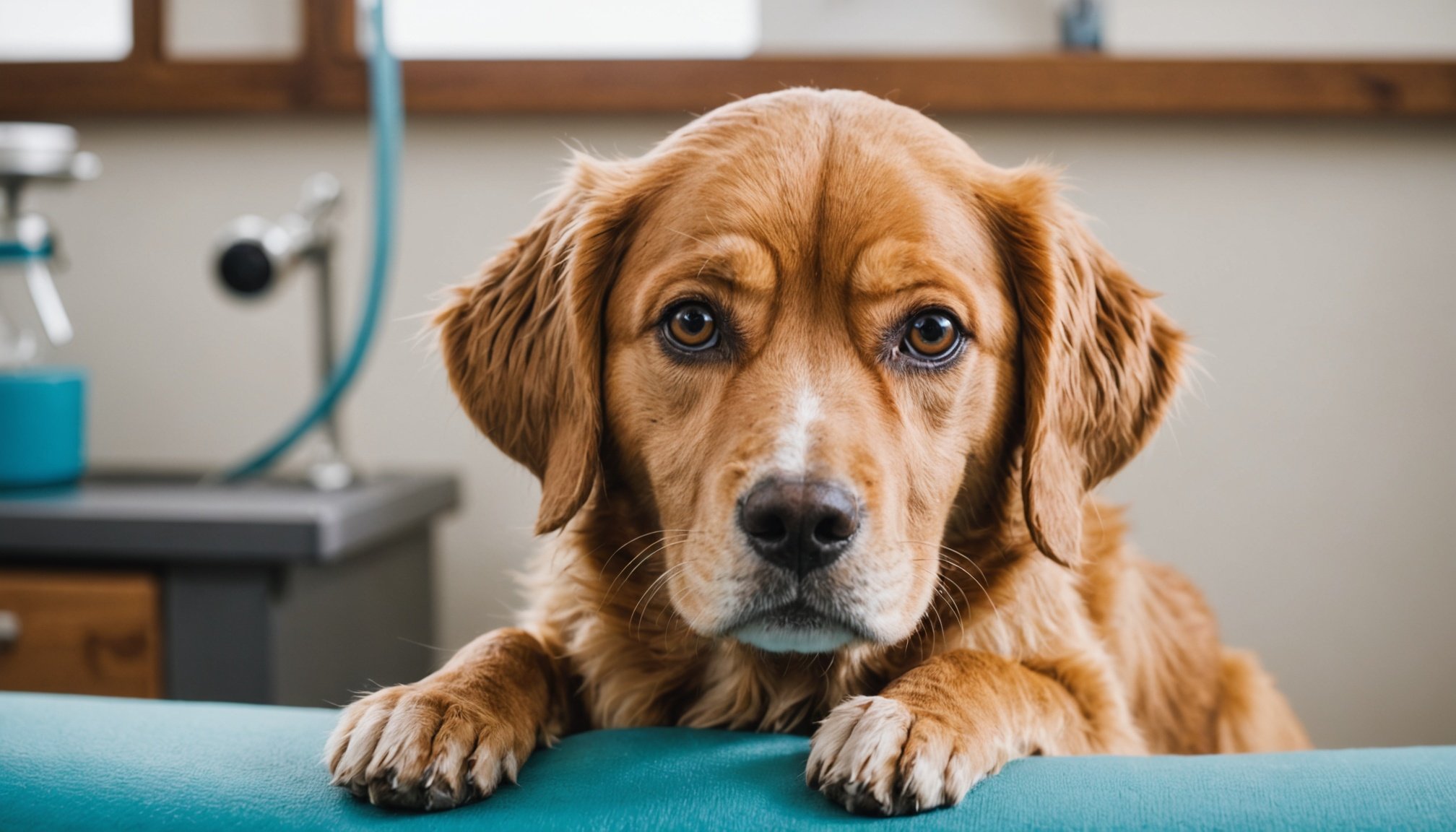Mastering Vet Visits: Tips for Easing Your Dog’s Anxiety at the Clinic
Taking your dog to the vet can be a stressful experience for both you and your pet. However, with the right preparation, understanding, and techniques, you can make these visits much more manageable and even fear-free. Here’s a comprehensive guide to help you navigate veterinary visits with ease and reduce your dog’s anxiety.
Preparing Your Dog for the Vet Visit
Preparing your dog ahead of time is crucial for a smooth and stress-free vet visit. Here are some steps you can take:
Also to see : Essential Tips for Easing Your Puppy into Grooming: A Stress-Free Approach
Get Your Dog Used to the Carrier or Car
If your dog needs to be transported in a carrier or car, start by making these experiences positive. Place treats and toys inside the carrier to encourage your dog to enter voluntarily. For car rides, begin with short trips around the block, rewarding your dog with treats and praise for calm behavior.
Desensitize Your Dog to Touch and Handling
Regular grooming and handling can help your dog become more comfortable with the types of touch and examination they will experience at the vet. Practice gentle petting, ear touching, and paw handling at home. This can make the vet’s examination less intimidating.
Additional reading : Teach Your Dog to Tackle Household Tasks: A Fun Guide to Canine Chores
Use Positive Reinforcement Training
Training your dog using positive reinforcement techniques can help them associate the vet visit with positive outcomes. Teach basic commands like “sit,” “stay,” and “come” using treats and praise. This training can also help your dog remain calm in new environments.
Choosing the Right Vet for Your Dog
The right vet can make a significant difference in your dog’s comfort level during visits.
Look for Fear-Free Certified Vets
Fear-Free certified vets are trained to create a calm and comfortable environment for pets. They use gentle handling techniques, positive reinforcement, and sometimes even pheromone therapy to reduce stress.
Read Reviews and Ask for Referrals
Check online reviews and ask fellow pet owners for recommendations. A vet with a good reputation for handling anxious dogs can be a valuable asset.
What to Expect During a Vet Visit
Understanding what happens during a vet visit can help you prepare your dog and yourself.
Routine Health Checks
Regular vet visits include a variety of checks to ensure your dog’s overall health. Here is a table outlining some of the key aspects of a routine health check:
| What Vets Check | Why It’s Important |
|---|---|
| Weight | To spot diet or health problems early. |
| Teeth | Healthy teeth mean a healthy pet. |
| Eyes and Ears | To prevent infections or find them early. |
| Heart and Lungs | To check for any cardiovascular issues. |
| Skin and Coat | To identify skin infections or allergies. |
| Stool Sample | To check for parasites or digestive issues. |
These checks are essential for maintaining your dog’s health and catching any potential issues early.
Reducing Stress During the Visit
Here are some tips to help reduce your dog’s stress during the vet visit:
Bring Familiar Items
Bring your dog’s favorite toys, blankets, or treats to provide a sense of comfort in an unfamiliar environment. These familiar items can help calm your dog down.
Use Calming Aids
There are various calming aids available, such as pheromone diffusers, calming collars, and anti-anxiety medications. Consult with your vet to determine the best option for your dog.
Keep the Visit Short
If possible, schedule shorter visits to reduce the overall stress. For example, if your dog needs multiple vaccinations, consider spreading them out over several visits.
Post-Visit Care
After the vet visit, it’s important to ensure your dog feels comfortable and secure.
Provide a Safe Space
Give your dog a quiet, comfortable space to rest after the visit. This can help them recover from any stress or discomfort experienced during the visit.
Follow Vet Instructions
If your vet prescribes any medication or recommends specific care, make sure to follow the instructions carefully. This will help your dog recover quickly and reduce any potential side effects.
Additional Tips for Pet Owners
Here are some additional tips that can make a significant difference in your dog’s vet visit experience:
Keep Your Dog’s Routine Consistent
Maintaining a consistent routine at home, including regular exercise, mental stimulation, and a balanced diet, can help reduce overall stress levels. Engage your dog in physical activities and mental exercises throughout the day to keep them tired and content.
Consider Pet Insurance
Pet insurance can be a lifesaver in case of unexpected vet costs. It can help alleviate financial stress, allowing you to focus on your dog’s health rather than the cost of care.
Frequently Asked Questions
Here are some common questions pet owners have about vet visits and how to manage their dog’s anxiety:
How Often Should My Dog Visit the Vet?
Regular vet visits are crucial for maintaining your dog’s health. Aim for at least one visit per year for adult dogs. Puppies, seniors, or dogs with health issues may require more frequent visits.
What Foods Are Unsafe for My Dog?
Certain human foods are toxic to dogs. Avoid giving your dog chocolate, grapes, onions, or xylitol (found in sugar-free products). Always check with your vet before sharing human food with your dog.
How Much Exercise Does My Dog Need Daily?
The amount of exercise your dog needs varies by breed, age, and health. Generally, dogs require 30 minutes to 2 hours of exercise daily. For example, greyhounds need a daily 20-30 minute walk and can benefit from short jogs and fetch games.
Mastering vet visits involves a combination of preparation, understanding, and the right techniques. By desensitizing your dog to touch and handling, choosing the right vet, and using positive reinforcement training, you can significantly reduce your dog’s anxiety during vet visits.
As Dr. Sophia Yin, a renowned veterinarian and animal behaviorist, once said, “The goal is to make the veterinary visit a positive experience for the pet, so they look forward to coming back.”
By following these tips and maintaining a consistent, loving care routine, you can help your dog feel more comfortable and secure during vet visits, ensuring their overall health and well-being.
Min Read: 15 minutes
Help Your Dog: Reduce stress and anxiety during vet visits with these practical tips and expert advice.
Pet Care: Ensure your dog receives the best care possible by understanding the importance of regular vet visits and how to make them fear-free.











